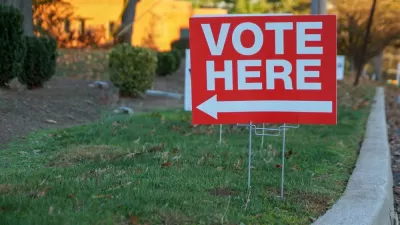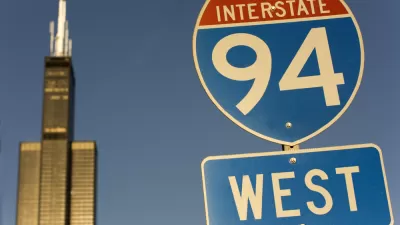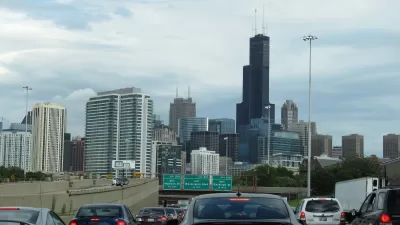A $40 million investment is being split between four cities—Memphis, Chicago, Akron, and Detroit—with the hopes of making big impacts for the community by revitalizing and/or repurposing exiting civic spaces.

A new initiative, "Reimagining the Civic Commons," is hoping to revitalize neighborhoods and diverse communities by investing in improvements in the less glamorous civic institutions that are commonly found in neighborhoods around the country—the rec centers, playgrounds, libraries and community centers. The JPB Foundation, the John S. and James L. Knight Foundation, the Kresge Foundation, and the Rockefeller Foundation are investing $40 million (after a match for the $20 million provided by local sources) into diverse projects in four select cities—Memphis, Chicago, Akron, and Detroit.
Kriston Capps of CityLab reports that the initiative will test a theory that improving these highly localized civic projects will benefit people of all backgrounds in the community, not just one or two subsets.
Libraries and rec centers don’t spend as much money or hire as many people as, say, universities or hospitals. So parks and old school buildings don’t fall into the same category of anchor institution, [Carol Coletta, senior fellow with the Kresge Foundation's American Cities Practice] explains. Nowhere close. But the advantage to more modest civic assets, the thinking goes, is that they’re everywhere. That means that cities can improve specific assets with the hopes of revitalizing communities that span economic classes.
The three-year initiative will be judged on the outcomes for the neighborhood, including improvement in the reputation and socio-economic diversity of the neighborhood, environmental sustainability (i.e., neighborhood walkability, increased tree canopy, etc.), and a new found political support for similar civic projects in the community.
FULL STORY: Creating Sustainable Cities by 'Reimagining the Civic Commons'

Alabama: Trump Terminates Settlements for Black Communities Harmed By Raw Sewage
Trump deemed the landmark civil rights agreement “illegal DEI and environmental justice policy.”

Study: Maui’s Plan to Convert Vacation Rentals to Long-Term Housing Could Cause Nearly $1 Billion Economic Loss
The plan would reduce visitor accommodation by 25% resulting in 1,900 jobs lost.

Planetizen Federal Action Tracker
A weekly monitor of how Trump’s orders and actions are impacting planners and planning in America.

Wind Energy on the Rise Despite Federal Policy Reversal
The Trump administration is revoking federal support for renewable energy, but demand for new projects continues unabated.

Passengers Flock to Caltrain After Electrification
The new electric trains are running faster and more reliably, leading to strong ridership growth on the Bay Area rail system.

Texas Churches Rally Behind ‘Yes in God’s Back Yard’ Legislation
Religious leaders want the state to reduce zoning regulations to streamline leasing church-owned land to housing developers.
Urban Design for Planners 1: Software Tools
This six-course series explores essential urban design concepts using open source software and equips planners with the tools they need to participate fully in the urban design process.
Planning for Universal Design
Learn the tools for implementing Universal Design in planning regulations.
Caltrans
Smith Gee Studio
Institute for Housing and Urban Development Studies (IHS)
City of Grandview
Harvard GSD Executive Education
Toledo-Lucas County Plan Commissions
Salt Lake City
NYU Wagner Graduate School of Public Service





























